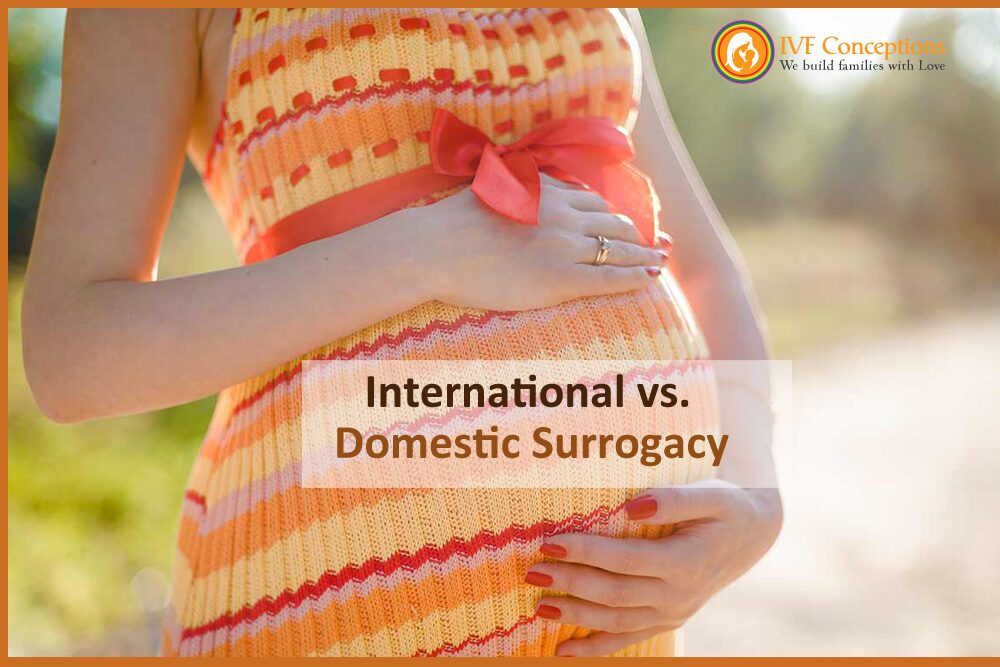Is Surrogacy Banned in India? Understand the Legal Status of Surrogacy In India

NO, surrogacy is not banned in India but it is more regulated and strict as per the Surrogacy Regulation Act, 2022. Are you wondering about the current legal status of surrogacy in India? This country used to be a top choice for parents from around the world. But it has changed a lot lately. From a big market to strong new rules, people are now asking: Is surrogacy banned in India today?
Let’s look into the details to understand the current rules on surrogacy in India.
Key Takeaways
- India was once a leading destination for international surrogacy, but in 2015, the government passed new regulations that made commercial surrogacy illegal for foreign couples.
- The Surrogacy (Regulation) Act of 2021 further tightened the rules, restricting surrogacy services to married Indian couples who have been legally and can provide a certificate of proven infertility.
- Commercial surrogacy is now banned in India, with only altruistic surrogacy permitted, and surrogates must meet strict criteria.
- The Indian surrogacy industry has faced concerns over the potential exploitation of surrogates and unethical practices, leading to the tightening of regulations.
- While surrogacy is no longer an option for international intended parents, it remains a legal and regulated process for eligible Indian couples, albeit with significant restrictions.
Get in touch for FREE SURROGACY CONSULTING:
Mobile: +91-8800481100 ( WhatsApp, Line, Viber)
Email: neelam@ivfconceptions.com
The Rise and Fall of Surrogacy in India
India was a top choice for couples around the world who wanted to use surrogacy. It was legal and easy to do there. This boosted surrogacy in the early 2010s.

India’s Surrogacy Boom
The easy rules in India made the surrogacy business grow fast. People from India and abroad came for cheap and easy surrogacy. This made many new surrogacy clinics and agencies open all over India.
Concerns over Exploitation and Unethical Practices
But, there were worries about how surrogates were treated and some unfair things happening. Surrogates told stories about bad living conditions and not getting paid enough. They felt like they were just making babies for others. This pushed for better rules and checks to make sure the surrogates were treated right.
The Initial Regulatory Changes: 2015-2020
Between 2015 and 2020, the surrogacy field in India saw big changes. The government wanted to prevent the exploitation of surrogates and fix the lack of control in the business.
Ban on Foreign Intended Parents
In 2015, India stopped foreign intended parents from using surrogates there. The goal was to shield vulnerable surrogate mothers from possible harm by people from other countries.
The Surrogacy (Regulation) Act 2020
The 2020 Surrogacy (Regulation) Act then made this ban into a formal law. It said that only Indian citizens could use surrogacy services. This act also brought in many rules to make sure surrogate mothers were treated fairly and safely.
The Surrogacy (Regulation) Act 2021
In 2021, changes were made to the Surrogacy (Regulation) Act in India. These new rules added strict conditions for couples looking for surrogacy. The goal was to make sure no one was taken advantage of. Also, they wanted the surrogacy process to be more ethical and controlled.
Additional guide for surrogacy in India:
Cost of Surrogacy in Mumbai: Affordable Options
Top 5 Best Surrogacy Doctors in Mumbai With High Success Rate (2023)
Best IVF Centers in India – IVF Conceptions
Is Surrogacy in India For Overseas Citizenship of India (OCI) Allowed
Latest Surrogacy Law in India- Surrogacy (Regulation) Act, 2021
Is Surrogacy for NRI in India Allowed?
How to Find Surrogate Mothers in India
How Much Does Surrogacy Cost In India ( in 2023)?
Legal Issues Related To Surrogacy In India
Surrogacy In India-Everything Parents Need to Know
Top 10 Surrogacy Doctors in India With Affordable Surrogacy Costs

THE SURROGACY (REGULATION) ACT, 2021
A lot of regulations were introduced, impacting many aspects of surrogacy. A glimpse of a few of the regulations are marked here below.
Important clauses redefining surrogacy are highlighted below.
- Has to be Gestational Surrogacy (the surrogate mother is not genetically linked to the child).
- Altruistic Surrogacy (no direct financial benefit to the surrogate mother)
- Registered Surrogacy Clinic only (ART Registered clinics can perform surrogacy).
- Single woman (divorced or widowed), between the age of 35 to 45 years. The genetic link is a must.
- Married Indian female (25 to 50 years) and male (26 to 55 years).
- Couple of Indian origin.
- The couple has not had any healthy surviving child biologically or by adoption.
- Insurance for 36 months, for the Surrogate mother for illness or death.
- Have to have Medical indication necessitating gestation surrogacy.
- No sex selection.
- To obtain a certificate of essentiality from The Appropriate Authority.
- To obtain a certificate of medical indication necessitating gestation surrogacy from the District Medical Board.
- Parentage Order passed by First Class Magistrate.
- Surrogate Mother to obtain eligibility certificate from The Appropriate Authority.
- The surrogate mother should be between 25 to 35 years.
- The surrogate mother will act as Surrogate only once in her lifetime.
- Medical and psychological fitness for Surrogate mother.
Surrogacy (Regulation) Amendment Rules, 2024- As of 21st Feb 2024, it is possible to use an egg donor or sperm donor if all other conditions are met.
Restrictions on Eligible of the Intended Parents
| Requirement | Details |
| Marital Status | Married Indian couples |
| Marriage Duration | Married |
| Infertility Certificate | Couples must provide proof of infertility |
| Surrogate Relationship | Can be any lady with |
| OCI card holder | IF both couples hold OCI and fulfil other criteria |
| NRI | Can do if they are Indian citizens and fulfil other criteria |
The Tightening of Regulations: 2022 and 2023
In 2020, the Surrogacy (Regulation) Act became important in India. It led to further improvements by the government. Both 2022 and 2023 saw more strict rules added.
Ban on Commercial Surrogacy
Commercial surrogacy was completely banned a key change. Now, only altruistic surrogacy is allowed. This means a surrogate mother can’t get paid, she can only get money back for her expenses.
Strict Criteria for Surrogates
The updated rules set firm standards for surrogates. Now, surrogates must be married and have a child of their own. They should also be between 25 to 35 years old. She can be a surrogate one time in her life.
One-Time Pregnancy Limit for Surrogates
There’s now a one-pregnancy limit for surrogates. This change aims to keep surrogate mothers from the health risks of having many kids. It’s about their health and safety.
Is Surrogacy Banned in India?
No surrogacy is banned in India, however, it is more restrictive and legally binding now. Surrogacy in India is now unavailable for foreign couples due to new rules. Only Indian couples, married, can opt for altruistic surrogacy. This change came with the recent regulations.
Now, possible to use an egg donor, if needed medically.

Surrogacy for Indian Heterosexual Married Couples Only
India’s Surrogacy (Regulation) Act of 2021 has tightened the surrogacy rules. Now, only Indian married heterosexual couples with a valid marriage certificate and medical indication.
These couples must also prove they are unable to have children naturally and have no children.
Conclusion
In recent years, surrogacy in India has changed a lot. The government has made new rules that mainly stop commercial surrogacy. Now, only Indian hetero-married couples can use surrogacy services. They must have a solid marriage for five years and show they can’t have kids on their own.
The law known as the Surrogacy (Regulation) Act started in 2020. It has been amended several times since then. Now, commercial surrogacy is not allowed. Only altruistic surrogacy is allowed. Surrogates have to be between the age of 25 to 35. They must be married, must have their own child, and they can only help in surrogacy once.
These new rules have changed the surrogacy world in India. It’s now harder for parents to follow the law. The government wanted to protect surrogates from harm. But these new laws have also made surrogacy harder to use for many people.
FAQ Is Surrogacy Banned in India?
 Is surrogacy banned in India?
Is surrogacy banned in India?
Commercial surrogacy is no longer allowed in India because of strict rules. These rules make it hard for people to use surrogacy services. Now, only Indian couples who have been married for five years can do commercial surrogacy.
What are the current surrogacy laws in India?
In 2020, a new law called the Surrogacy (Regulation) Act was passed in India. This law stops foreign couples from using surrogacy services in India. It also protects the rights of surrogates by setting up specific rules. For example, surrogates must be married and have their own biological child.
Is altruistic surrogacy allowed in India?
Yes, altruistic surrogacy is still allowed in India. But it comes with certain rules. The surrogate must be a “close relative” of the intended parents. And the surrogate can only help once, carrying a pregnancy only once for surrogacy.
How much does surrogacy cost in India?
The average cost of surrogacy in India ranges from 20 lakh INR to 25 Lakh INR based the the services needed and the location. The costs of surrogacy in India have gone up because of new regulations. The process is more complex now. This can make the whole process cost more. Still, surrogacy in India is often cheaper than in other places.
Can foreign couples still use surrogacy services in India?
As of 2020, foreign couples cannot use commercial surrogacy services in India. The new law, the Surrogacy (Regulation) Act, forbids foreign participation in surrogacy.
What are the requirements to be a surrogate mother in India?
Surrogates in India must meet several criteria. They need to be married, have their own child, and be 25 to 35 years old. Also, they can only help once in their life by being a surrogate.
How does the surrogacy process work in India?
In India, the surrogacy process includes finding a suitable surrogate. Then, getting all the legal and medical approvals. It also involves lots of paperwork. The recent changes in regulations have made the process tougher. Thus, it is wise for intended parents to work with a well-known surrogacy agency or expert legal advice.
Is surrogacy affordable in India?
Yes, surrogacy is more affordable in India than in many other places. But, costs have risen due to new laws. Intended parents must consider legal fees, medical costs, and surrogate compensation. Researching different surrogacy agencies in India for pricing is crucial.
Source Links
- https://surrogate.com/intended-parents/international-surrogacy/surrogacy-in-india/
- https://www.thehindubusinessline.com/blexplainer/explainer-what-does-the-new-law-on-surrogacy-say/article66570771.ece
- https://www.fox21news.com/business/press-releases/ein-presswire/640525172/navigating-the-changing-laws-of-surrogacy-in-india-brutal-2023-laws-forcing-singles-to-go-overseas-to-have-a-child

